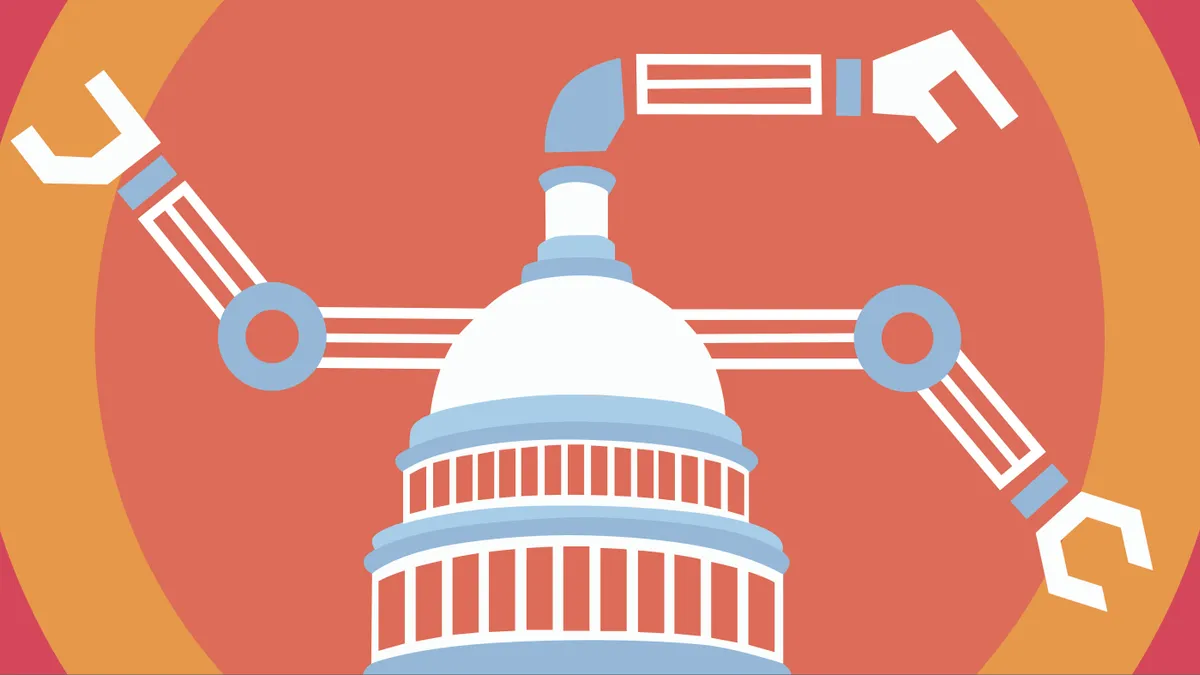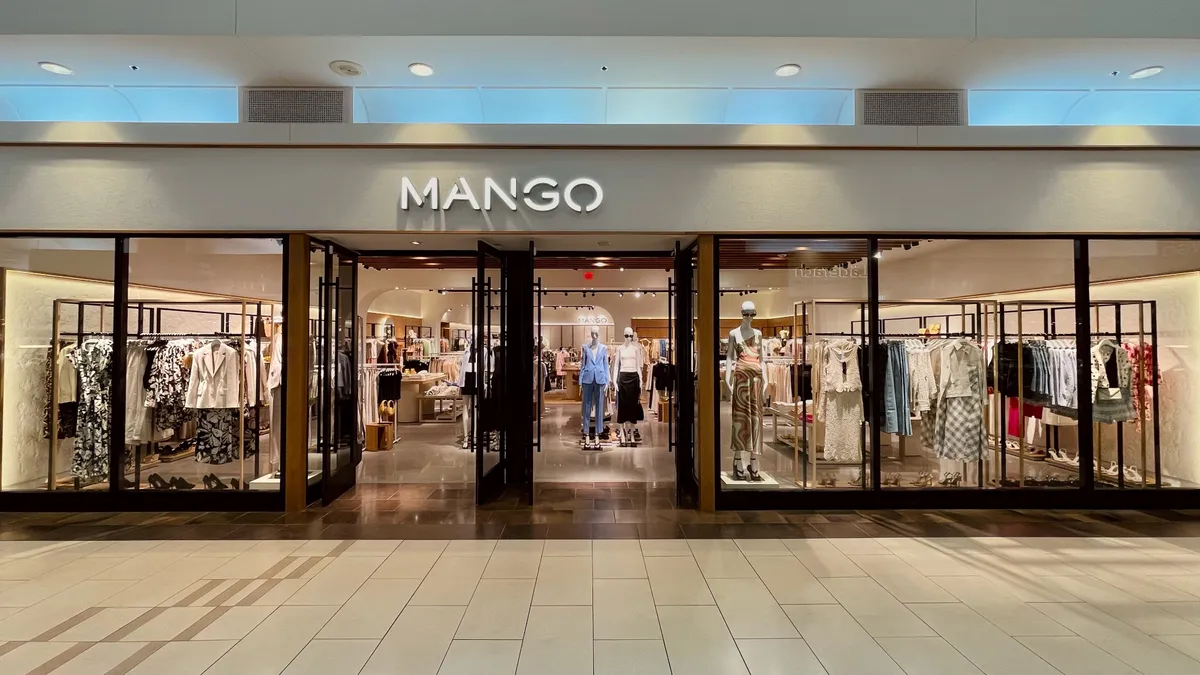Logistics needs more jobs
Weekly jobless claims for the week of April 28 rose slightly to 211,000 (an increase of 2,000 week to week) but the seasonally adjusted insured unemployment rate declined 0.1%. The job market is on a strong trajectory, but the logistics industry needs a million more employees, according to a report from The Loadstar.
The Reaction: The labor market is tight, and the entire supply chain industry needs positions filled now. Tailoring jobs and adding popular perks to attract millennials may have positive impact.
Tariff effects on manufacturing supply chains
Even though President Trump postponed implementation of the hotly contested steel and aluminum tariffs, manufacturers were rushing to lock down steel and aluminum at desirable prices before the deadline, according to The Wall Street Journal.
Besides doubled delivery times, manufacturers have seen higher prices and are increasingly anxious about how tariffs affect supply chains and bottom lines.
The Reaction: The U.S. steel industry's reactionary approach to Trump's tariffs further shows how the rhetoric — not the tariffs — are doing more harm than good. For markets, this is a classic case of uncertainty causing more problems than public policies or business decisions.
Since we don't know if the tariffs will go into effect, expect more uncertainty and more industry scrambling to prepare for a worst-case scenario.
Mexican auto industry rejects U.S. NAFTA rules for auto supply chains
While the NAFTA 2.0 negotiations are far from finished, we do know the U.S. is pushing to localize the U.S. auto supply chain, based on its latest proposal to require 75% of certain vehicle parts to originate in North America. The proposal also asks that 70% of vehicles' steel and aluminum be North American.
The Mexican auto industry rejected the proposal, calling it too restrictive, The Wall Street Journal reported, and plans to present its proposal for vehicle component origin next week.
The Reaction: The U.S. wants to move more manufacturing closer to home — to revitalize American manufacturing, specifically the broken Midwest and Rust Belt manufacturing towns, as part of Trump's "America First" policy — but because the auto supply chain is global, the goal presents challenges.
Attempting to localize the auto supply chain may not get far in the NAFTA negotiations because the U.S. must negotiate with two other countries that have their own interests and priorities. If they're going to strike a deal, not all the "America First" policies may prevail.
Nikola sues Tesla for patent infringement
Nikola Motor Co. filed a $2 billion lawsuit this week claiming Tesla Motors' electric truck violates Nikola's patents, FreightWaves reported.
Nikola thinks Tesla caused "market confusion" by infringing on Nikola's patents for fuselage, a wrap windshield and side door, thus "diverting" sales toward Tesla instead of Nikola.
The Reaction: Nikola's suit seems like a manifestation of middle child syndrome. Nikola has about 5,000 fewer reservations for its hydrogen-electric truck than Tesla's fully electric semi, and in its latest attempt to discredit Tesla (there are many), Nikola cries foul because it's falling behind in the competition.
It appears Nikola is jealous of Tesla's seemingly incorruptible brand image. Or maybe Nikola is jealous of Tesla's more impressive technology, which is frequently lauded as the best in the auto industry despite its production problems.
Regardless, does it really make sense to sue? Tesla allegedly doesn't have any cash.
Can IoT stem the global food shortage?
According to IEEE, food production must increase 70% to meet the world's needs by 2050. That's why IEEE launched an Internet of Things (IoT) Farm to Table solution to improve farming conservation efforts and productivity. This IoT solution can allegedly:
- Help farmers find the best locations to plant seeds
- Save 40% of water through a smart irrigation system
- Monitor livestock (including movements, readiness for milking and body temperature)
- Help predict when harvesting equipment needs maintenance to avoid setbacks and delays
- Improve the cold chain by monitoring temperature of produce from origin to destination
The Reaction: Technology often improves the efficiency and efficacy of operations, so using IoT to stem the impending global food shortage could be the solution global farmers need to ramp up production.
Although pilot projects have proved successful (according to IEEE), deploying the technology across the agricultural industry is an enormous project that will require much funding, time, infrastructure and likely regulation as well. To start making IoT-managed farms a reality, farmers and tech companies are going to have to get investors on board.
In case you missed it
Seventeen states are suing Trump's decision to loosen vehicle emissions rules, despite automakers' support of the change, Reuters reported. Norfolk Southern is using predictive analytics to maximize operational efficiency, with decent success, The Wall Street Journal reported.
In other news, Soft Robotics — a tech company that builds robots with rubber gripping hands to pick up objects, designed to operate in warehouses — raised $20 million in a funding round led by Hyperplane VC.
FedEx is now delivering packages from its first hydrogen-fueled truck in the greater New York City area, according to Bloomberg.
But K&J Trucking might have something "cooler": a solar panel-powered refrigerated truck, checking off sustainability and the cold chain with one semi. According to TruckingInfo, the solar panels would recharge reefer batteries so that they aren't drained from maintaining truck temperature, lighting and other technical necessities.
Looking ahead
The Wall Street Journal reported that states which hike tolls and taxes may have a better shot at getting the coveted federal infrastructure funding, based on Department of Transportation rules.
Speaking of infrastructure, DOT officials are meeting with the Association of American Port Authorities at the Port of Virginia next week to discuss infrastructure projects.
In other news, United States Trade Representative Robert Lighthizer said he wants a NAFTA deal by mid May.






















